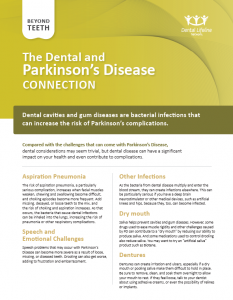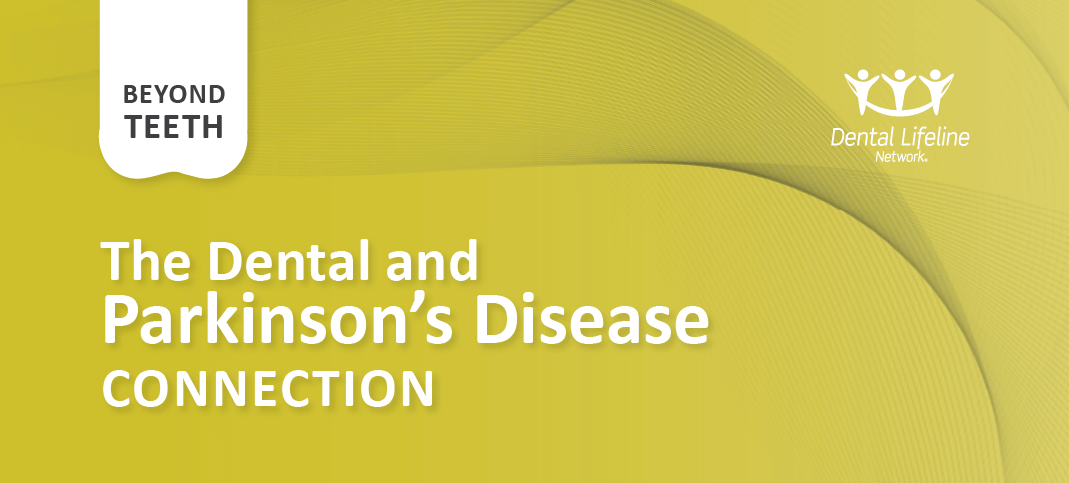Dental cavities and gum diseases are bacterial infections that can increase the risk of Parkinson’s complications. Compared with the challenges that can come with Parkinson’s Disease, dental considerations may seem trivial, but dental disease can have a significant impact on your health and even contribute to complications.
Aspiration Pneumonia
The risk of aspiration pneumonia, a particularly serious complication, increases when facial muscles weaken, chewing and swallowing become difficult, and choking episodes become more frequent. Add missing, decayed, or loose teeth to the mix, and the risk of choking and aspiration increases. As that occurs, the bacteria that cause dental infections can be inhaled into the lungs, increasing the risk of pneumonia or other respiratory complications.
Speech and Emotional Challenges
Speech problems that may occur with Parkinson’s Disease can become more severe as a result of loose, missing, or diseased teeth. Drooling can also get worse, adding to frustration and embarrassment.
Other Infections
As the bacteria from dental disease multiply and enter the blood stream, they can create infections elsewhere. This can be particularly serious if you have a deep brain neurostimulator or other medical devices, such as artificial knees and hips, because they, too, can become infected.
Dry Mouth
Saliva helps prevent cavities and gum diseases. However, some drugs used to ease muscle rigidity and other challenges caused by PD can contribute to a “dry mouth” by reducing our ability to produce saliva. And some medications used to control drooling also reduce saliva. You may want to try an “artificial saliva” product such as Biotene.
Dentures
Dentures can create irritation and ulcers, especially if a dry mouth or pooling saliva make them difficult to hold in place. Be sure to remove, clean, and soak them overnight to allow your mouth to rest. If they feel loose, talk to your dentist about using adhesive creams, or even the possibility of relines or implants.
Resources

Download a PDF fact sheet of this information
This information is a public service of the Dental Lifeline Network. The content is for educational purposes only. It should not be used as a substitute for the medical advice of one’s health care provider.


